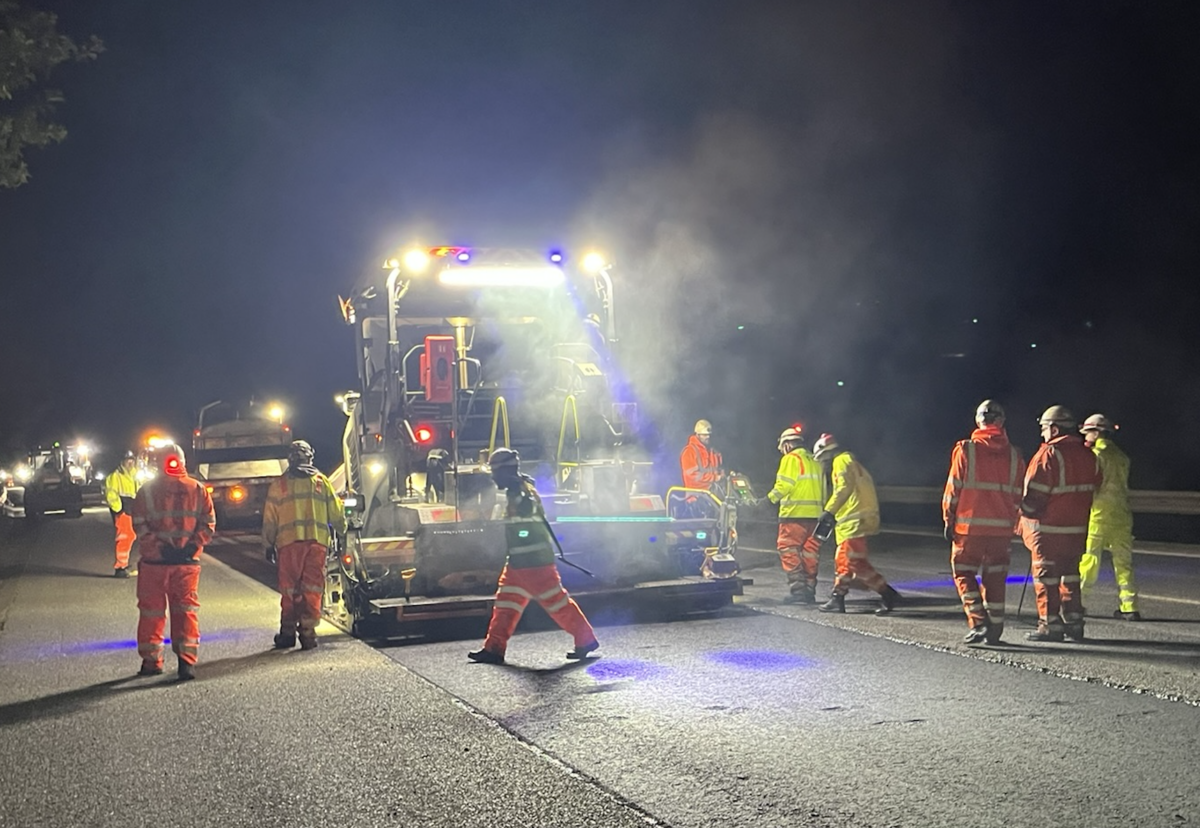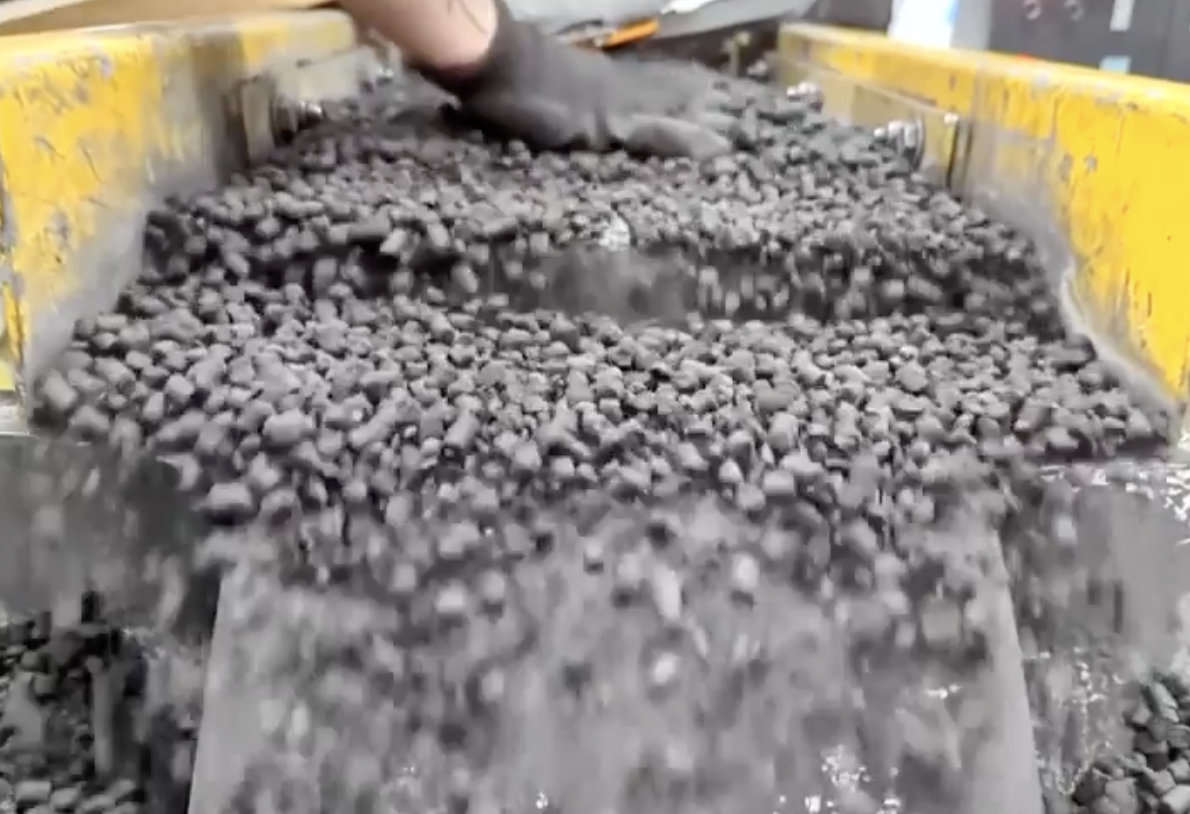The replacement carbon-negative aggregate has the potential to significantly lower the carbon footprint of asphalt making net zero achievable for blacktop.
This ‘next generation’ construction material is being tested on the northbound carriageway of the M11 in Essex during essential resurfacing and maintenance work between junctions 7 and 8.
Here it will be subject to ‘real world’ levels of heavy traffic and will have routine monitoring by National Highways.
A test strip of asphalt concrete binder course containing the new aggregate product has been laid alongside a control test strip containing 100% conventional aggregate.
National Highways hopes the carbon-negative aggregate could ultimately make a significant impact on carbon emissions with minimal change to standard procedures.
Seaham-based company Low Carbon Materials supplies the ACLA aggregate, which was put through its paces for the first time in April on a small stretch of A-road in Durham
Dr Joanna White, National Highways’ Research, Development and Innovation Director, said: “Solutions like this could have a real impact on our road to net zero carbon so we are delighted that we have been able to accelerate the development of the product and get it on one of our roads for testing.
“Testing the asphalt in real conditions on a heavily trafficked motorway, under close scrutiny, will be far more effective in proving the durability of the product and hopefully its success.”
Skanska chief engineer Paul Cole said: “The challenge was to responsibly bring LCM’s new product to market as quickly as possible.
“Within an eight month period a new material has been thoroughly tested against Highway Specifications and successfully trialled on the National Highways strategic road network. Eight months ago I didn’t believe that would be possible. It is amazing what can be achieved through effective collaboration.”
ACLA
Founded by three Durham University PhD students, LCM aims to clean up construction with its aggregate.
ACLA is a carbon-negative aggregate that acts as a permanent carbon storage solution for the decarbonisation of asphalt.
It utilises the carbon removal technology of sequestration to permanently remove carbon dioxide from the atmosphere.
Around 25 million tonnes of asphalt are produced annually making tackling the emissions of asphalt a priority for the UK road network to achieve net zero by 2050.
Typically asphalt generates emissions of 30-70kg CO₂e/tonne. To achieve net zero, 5-7% of ACLA by weight of the total asphalt mix is likely required depending on the embodied carbon of the mix designs.
















































.gif)







 (300 x 250 px).jpg)